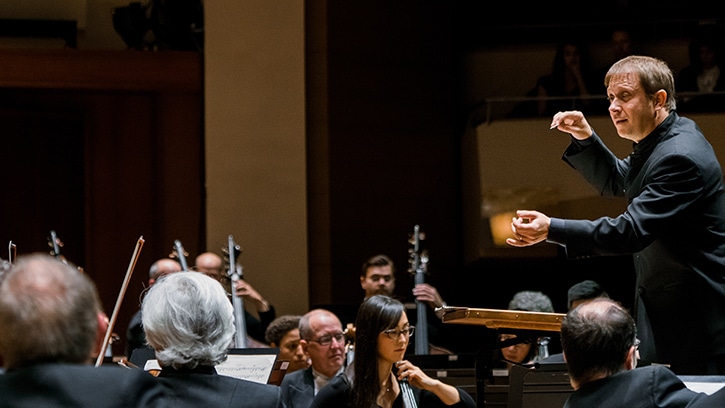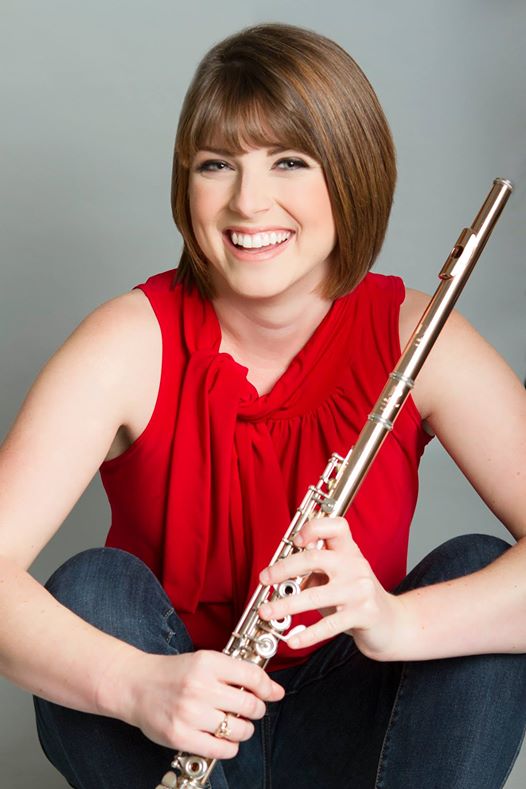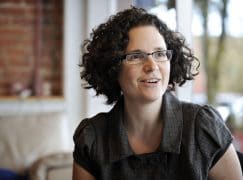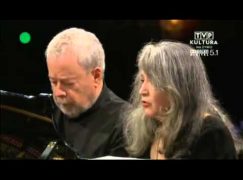The Seattle Symphony Orchestra’s music director Ludovic Morlot has announced he will leave in 2019 after eight years in the job.
He has no other post immediately in sight. He says he is ‘contemplating new horizons — nothing I’m ready to share with you today.’

photo: SSO
UPDATE: Morlot on social media: ‘After much reflection, I have decided to step down as Music Director of the Seattle Symphony in 2019. We are in the midst of a wonderful, stimulating and exciting artistic journey. I look forward to continuing this journey in the next two seasons; however, I feel that by 2019 the time will be right for me to explore new musical horizons and for the Symphony to benefit from the inspiration of new artistic leadership. I will be forever grateful to you and proud to have helped write a chapter in the history of the Seattle Symphony.’
Here’s the orchestra’s press statement:
Seattle, WA – Music Director Ludovic Morlot today announced that he will step down as Seattle Symphony Music Director in 2019, after eight seasons with the orchestra. Since 2011 Morlot has re-energized the organization with his thrilling performances, his innovative programming bringing together the familiar and the unfamiliar, and his award-winning recordings, as well as his work with youth, families and the community. Morlot and the Seattle Symphony are committed to developing the thread of creative and exciting programming that has distinguished his tenure, and as such, Morlot will continue to conduct the orchestra regularly beyond summer 2019.
“I will be forever grateful and proud to have been given the opportunity to help write a chapter in the history of the Seattle Symphony,” shared Morlot. “And what a beautiful chapter it is; thrilling performances played to full houses, the appointment of so many outstanding musicians, three Grammys, a strong list of commissions and premieres, a memorable concert at Carnegie Hall, an upcoming residency at Berkeley, and so much more. I am also extremely appreciative of the commitment that the community as a whole has offered to me at the artistic helm of this extraordinary organization. The decision to step down as Music Director when my contract comes to an end in 2019 is not one I have taken lightly. We are in the midst of a wonderful, stimulating and exciting artistic journey and I look forward to continuing this in the next two seasons. However, I feel that by 2019 the time will be right for me to explore new musical opportunities and for the Symphony to have the inspiration of new artistic leadership.”
Kelly Zimba, from Pittsburgh, won principal flute at the Toronto Symphony Orchestra last month.
She tells Classical Music Network what it took to get there:

photo; Shannon Langman
‘Including Toronto, I took 17 (auditions) in the span of 2.5 years. In the beginning, I think I put too much pressure on doing well and advancing to the next round. It didn’t work well.
‘When I stopped thinking about the results and tried to enjoy the process more, I started to see hints of success. For me, the process wasn’t linear at all. I would make the finals in one audition, and then not advance past the preliminaries in the next one. It was random, and I don’t think I played that differently in each audition. There are many factors in an audition that are out of your control, and I learned to be okay with that.
‘Financially, auditions can get expensive! I took advantage of frequent flyer miles and hotel points when I could, but mostly I became obsessed with travel deals. Staying in an Airbnb was often much less expensive than booking a hotel, and I usually tried to stay somewhere along a public transportation line with easy access to both the airport and the hall.
‘Occasionally, Groupon would have a hotel deal of which I could take advantage. Sometimes, I would piece together two different flights/drives if it was cheaper than flying directly to a particular city. ‘
Read the full interview here.
An unusual request from our string quartet diarist, Anthea Kreston:
I need your help. Is anyone good at musical detective work? I am putting out a crowdsourcing request.
I read in the Steinhardt book, “Indivisible by Four” that Schumann conceived, at one point, of his three quartets as something that could be played in a row, that they could connect. Steinhardt also says that Schumann actually wrote bridge music to be played between the works, so they could be played without pause, and that he later destroyed this music.
I nearly flipped out. We have been playing the Schumann 3 for many months now, and Schumann 2 for the past month. This week we started on Schumann 1. For the first time, last week, we put 2 Schumanns together in one program, and for me, there was magical almost-symmetry, a way in which they informed one another – how some of his thoughts, which can often feel incomplete or inconclusive, had a corresponding answer in the other quartet.
These three quartets were written between June 4 and 22, 1842 – a span of less than three weeks, after a period in which he was unable to write because of a depressive episode. How could they not be conceived of as a whole – considering the short time in which they were composed? They must belong to one another – overlaying pieces of the same puzzle, each piece only complete when seen through the lenses of the others. He presented them as a birthday present to Clara – it is amazing to think of them so young – she turned 23 in September of 1842.
Just because quartets up until this time had been packaged in neat, easy-to-digest 35-50 minute portions, doesn’t mean that a 2 hour piece of music (including connecting music) couldn’t be thought of, especially by someone as unique as Schumann.
Wouldn’t it be magical to hear what these three works would sound like, all together, and where is that missing music? Is there a sketch, mention in a letter – something from Clara, Robert or even Johannes – more information out there?
If anything exists, can it be reconstructed? Or a new commission(s?) be made for bridge music? If it were any other composer (the three Brahms quartets, for example), I don’t think I would be so keen – so certain that this could be pure magic. But – the combination of lightness and fantasy, interchanged with heavy, funny German dances and deep, throbbing and sweeping slow movements – these pieces read like novels. And together – a triptych. It could be transformative.
When I read about this in Arnold Steinhardt’s book, I was sitting on a plane, heading to London. I was floored. As a student at Curtis, I worked with Mr. Steinhardt, but not enough or probably well enough for him to remember who I was, or to keep in contact. How to reach him – I needed more information. So – I Messengered Ida Kavafian, my “Violin Mom” – a teacher who embodied, for me, the perfect mix of inspiration, technical advice, and life lessons. And, of course, a deep dedication to all of her students – warmth and endless humor and encouragement.
To my delight, within the next 2 hours, these messages, below. The first one sent backstage from Wigmore – the final one backstage after the concert.
“Ida! I just read something from Steinhardt in “The Art of Quartet Playing” where he talks about a destroyed copy of Schumann – bridge music between the quartets (so they could be played all together). Do you know anything about this? If not, do you see Mr. Steinhardt around and can you ask? I am obsessed.”
“HAHAHAHAHA!!! I’m sitting with him in auditions at Curtis. More later.”
“Wow! You shouldn’t be texting! Pay attention to those Paganini caprices!”
“Hahaha – intermission Wigmore!”
“So at first he’s made this cute comment that “well, she knows just about as much as I know about it”. But then he described how in the romantic era often people would improvise little tiny pieces/links between pieces. Apparently Josef Hoffman did that when he played recitals at Curtis and probably elsewhere. Apparently Schumann wrote some of these links between the first and second and then the second and third quartets but then he thought better of it. Arnold doesn’t know if they still exist.
How was your concert? I used to love playing at Wigmore!!!!”
“Quartet is fun! I am always wanting to play on the g string, and they complain a little about it, but other than that all is well! Please tell Mr. Steinhardt thank-you – I will try to keep researching and let you know if I find anything. My biggest hugs to my favorite teacher “
“
“Hugs and kisses right back!
And apologies for telling you to play on the G string too much…”
Followed by a emoji of a bunny and hamster high-fiving with 8th notes floating around
So – Slipped Disc readers – if you are so inclined, can you help me? There must be some evidence somewhere – a mention of a house concert, letter, talk from musicians, a diary, sketch, something in a library or collection. I have never asked for your help before, but now is the time! Together we could discover something incredible.

You can email me at Geigeberlin@yahoo.com.





